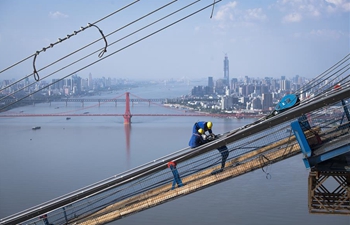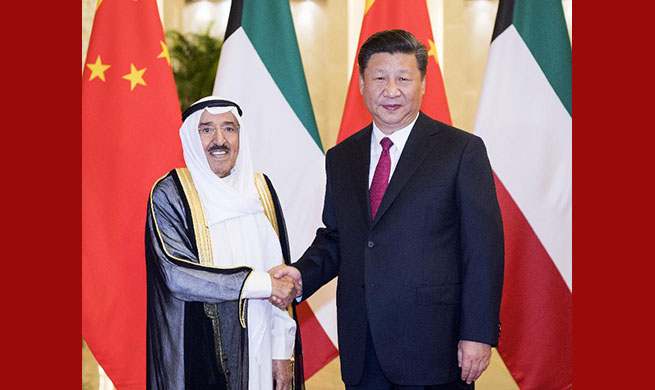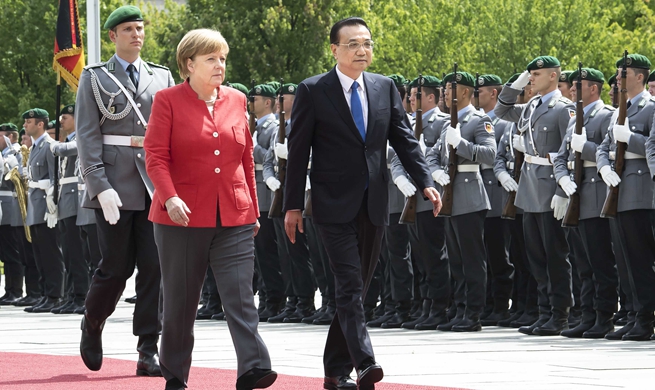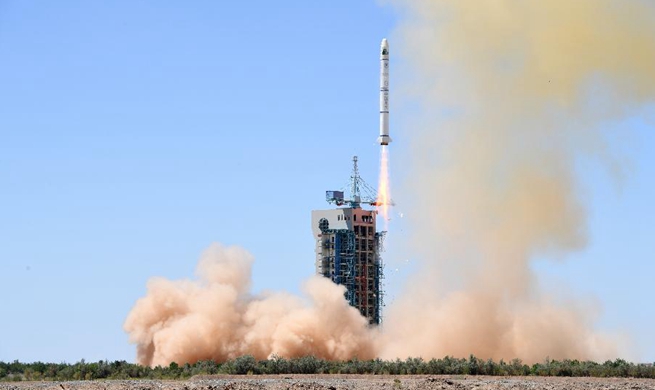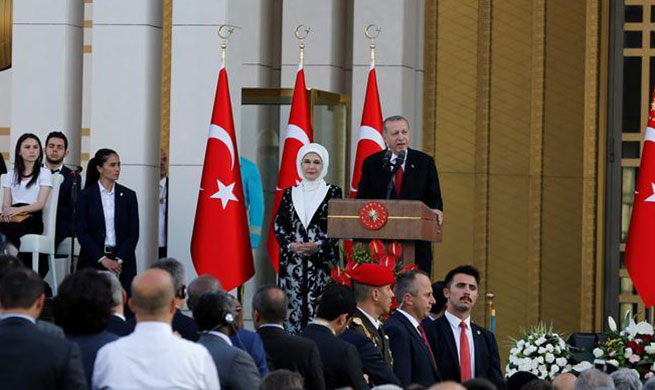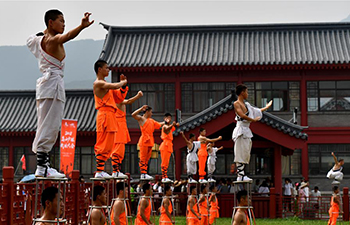By Sportswriters Michael Place, Liu Ning and Wu Shuguang
MOSCOW, July 9 (Xinhua) -- We take a look at five lessons that China can learn from the 2018 World Cup in Russia.
1. History counts for nothing
In a World Cup of surprises, teams that have traditionally had only moderate success on the international stage have proven that even the world's best can be vulnerable under pressure. No team typified this more than Russia. The hosts showed the benefit of playing with passion, tactical discipline and self-belief as they made it to the last eight for the first time in the post-Soviet era.
Iceland, despite failing to advance beyond the group stage, were another team to make an impression. With a population of less than 350,000, the Nordic nation was able to field a team that was more than competitive here. Heimir Hallgrimsson's men outplayed Lionel Messi's Argentina in the first half of their tournament opening before holding the two-time champions to a 1-1 draw. They also pushed Croatia until the last minute in Rostov, where they came away with an unlucky 2-1 defeat.
2. Asian power
Often maligned as one of FIFA's weaker regions, Asia was well represented here. South Korea and Japan, in particular, showed that they can compete against the world's strongest teams. Fast and fearless, Japan looked like overcoming Belgium by scoring the first two goals in their round of 16 duel. However the European side struck three goals in the last 25 minutes to snatch victory in stoppage time.
South Korea didn't progress beyond the group stage but caused one of the upsets of the competition when they overcame defending champions Germany 2-0 in their last group match. A special mention goes to Iran, who didn't make it to the knockout stage despite conceding only twice in their three matches.
3. Foreign coaches can succeed
China have had eight foreign coaches since Klaus Schlappner became the first non-Chinese boss of the national team in 1992. It hasn't always been a successful experiment, but Russia 2018 has shown that managers holding foreign passports can prosper on football biggest stage. The best example of this has been Roberto Martinez.
The Spaniard's tactical acumen and pragmatism have allowed Belgium to finally unlock their potential, having progressed to the last four of the World Cup for the first time since 1986. Other foreign coaches to lead their teams into the knockout stage here were Norwegian Age Hareide (Denmark), Colombian Juan Carlos Osorio (Mexico) and Argentinian Jose Pekerman (Colombia). Kudos should also go to Argentinian Ricardo Gareca for guiding Peru to the World Cup finals for the first time in 36 years.
The performances of the aforementioned teams gives China has every reason to believe that its strategy to look beyond its own shores will yield results. Current boss Marcello Lippi, who guided Italy to World Cup glory in 2006, deserves every chance to instil his philosophies and methods in the national set-up.
4. Chinese Super League on the rise
The standard of the Chinese Super League has improved markedly in recent years with a number of global stars leaving Europe to join local clubs. This World Cup has provided further evidence that China is an ideal place for the world's elite footballers to ply their trade. Some eight players at this World Cup belong to Chinese clubs, including Brazil's Renato Augusto, Argentina's Javier Mascherano and Belgium's Yannick Carrasco.
The Super League's high representation shows that Chinese domestic football must be nurtured and the high quality maintained. The importance of promoting local talent while attracting international stars will continue to be a fine balancing act.
5. Off-pitch presence
The 21st edition of the World Cup has also shown that it is possible for countries to make an impression at football's biggest international event without fielding a team. China has done just that, providing a raft of major sponsors that have capitalized on the tournament's exposure to extend the global reach of their brands.
Among official backers of Russia 2018 are property and entertainment conglomerate Wanda, technology firms Hisense and Vivo, and dairy company Mengniu.
"Chinese companies spotted the opportunity for a relatively cost-effective way to get their brands in front of billions of global eyeballs," Simon Chadwick, professor of sports enterprise at Salford University in the UK, told the Guardian.





